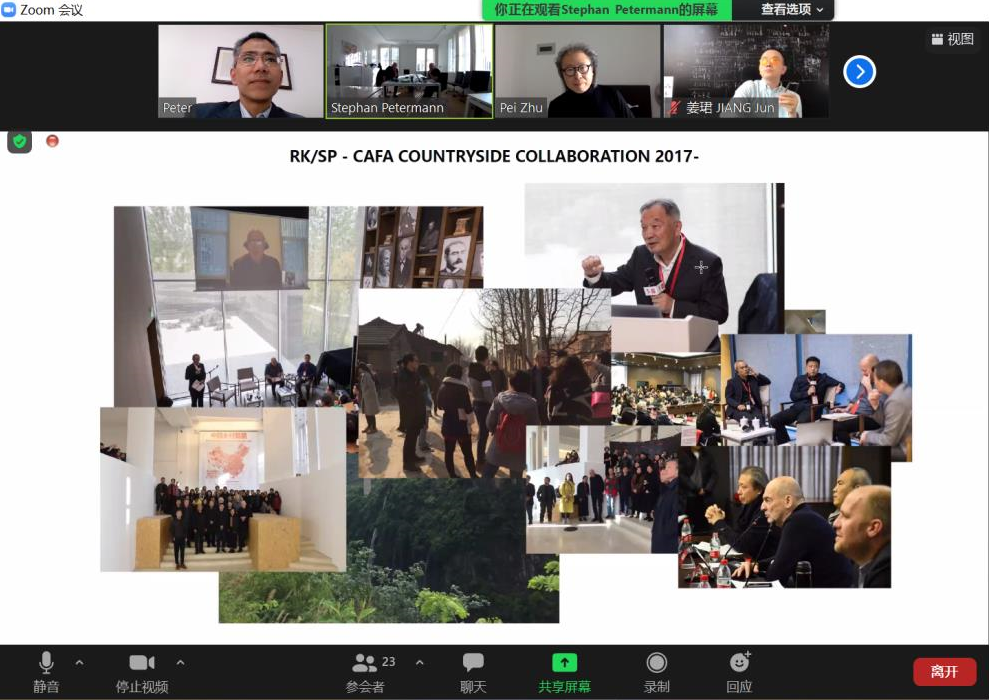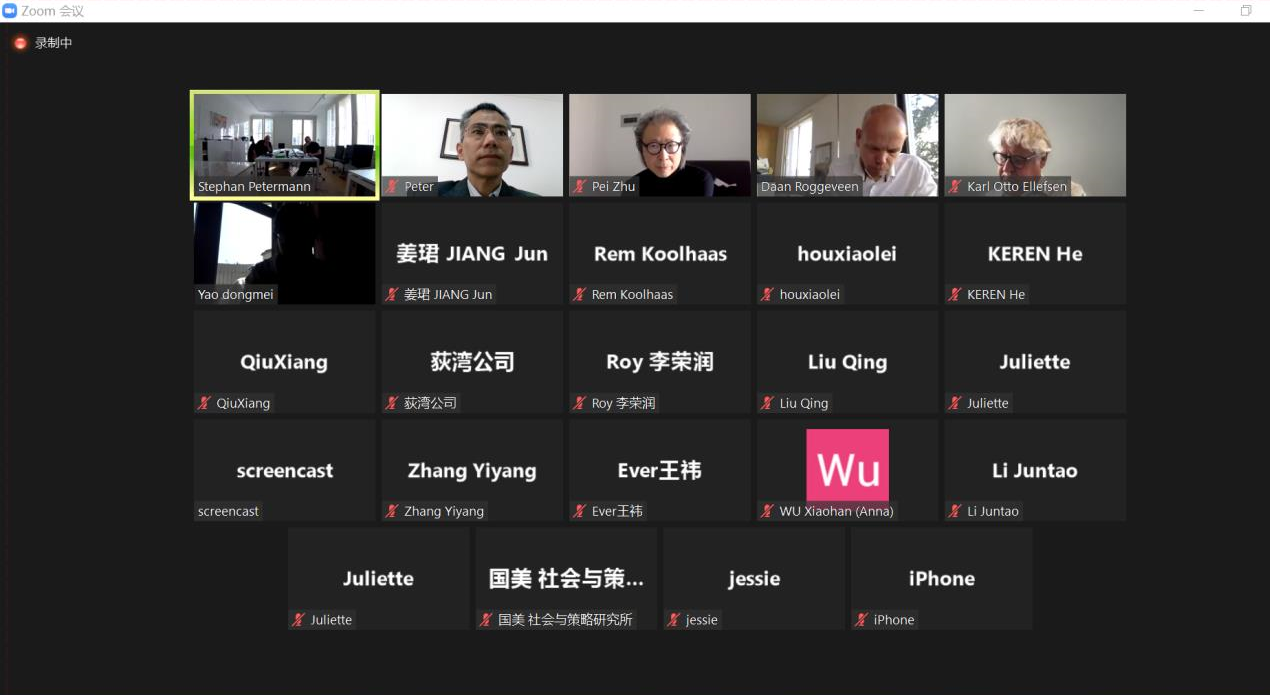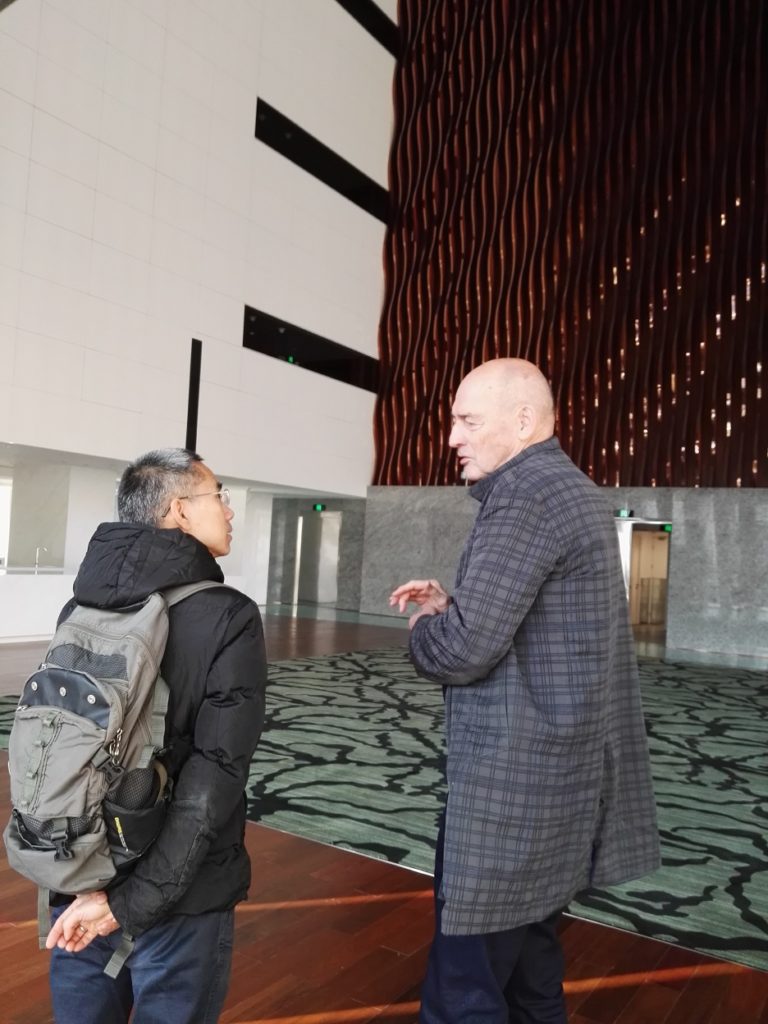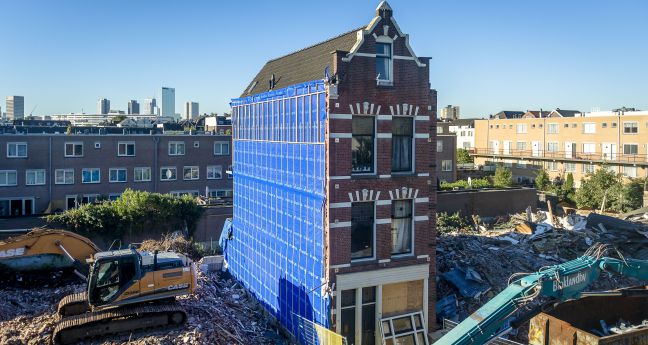This special issue examines the question why some property rights succeed and others fail. The articles validate the axiom that Form follows from Function aka Credibility Thesis, and study this in a wide range of areas such as informal tenure, land value capture, rural conflicts and nature management. The methods used include the Conflict Analysis Model, FAT Framework and the CSI Checklist. The collection is preceded by a substantial review of the research on the Credibility Thesis over the past decade. More info.
All posts by Main User
Institutions & property, ICARDC XVII, Singapore
A double panel on institutions, property and land rights was organized at the 17th ICARDC Conference hosted by the Singapore Management University in July 2024. The panels – chaired by Peter Ho and Thomas Reuter – brought together experts from Australia, Belgium, China, Hong Kong, Malaysia, Pakistan and the USA.
EXPERIMENTAL STUDIO XIHU FUTURES / CHINESE COUNTRYSIDE
On Thursday 21 April 2022 an experimental studio, which presented a series of fascinating, architectural study projects in the Chinese countryside, was held. The studio was arranged around thought-provoking questions such as what is the added value of an architect in the countryside? How does the profession in the countryside differ from an urban context and what possibilities does that bring?
The studio was hosted by the China Academy of Fine Arts (CAFA) together with Rem Koolhaas of the Office for Metropolitan Architecture (OMA). Special guests included Prof. Peter Ho, Prof. Karl Otto Ellefsen, Jiang Jun, and Daan Roggeveen. See the program.

New publications and events
New publications on the credibility thesis in relation to land, property, and resources have been released. They include a study by Zhou and Yau (2021) proposing a refinement of the theory through the case of Chinese informal housing; a paper arguing for a dynamic theory of public instead of private financial institutions (Marois, 2021), and the first study confirming the credibility thesis in an endogenous Agent-based Model of the commons (Ghorbani et al., 2021).
A new special issue “The discipline of form: why the premise of institutional form does not apply to land, labor, capital, and technology” (JoCG, SSCI/IF 2.333) has also come out.
All publications can be downloaded from the publications page. For those reading Chinese, a special page with studies on credibility in Mandarin has also gone live recently.
Last but not least, we’re pleased to announce keynote lectures on land ethics and the future of public land systems (see below). You’re all warmly welcome to attend.
Justice and Land Use Ethics: John Rawls meets Aldo Leopold
7 December 2021, 9:00 CET and 16:00 CST (at the time, click the link to participate)
By Prof. Benjamin Davy
Ben Davy is Visiting Professor at the Faculty of Law, University of Johannesburg. Between 1998 and 2019, he was Professor of Land Policy, Land Management, and Municipal Geoinformation at the School of Planning, TU Dortmund University. Davy was Vice President and President of the International Academic Association on Planning, Law, and Property Right (PLPR) (2010—2016) and Vice President and President of the Association of European Schools of Planning (AESOP) (2017—2021). Davy is member of the editorial boards of the Journal of the American Planning Association (JAPA) and Planning Theory and Practice.
Futures of nationally owned land and leaseholds systems – China and Israel as strange-coupled twins
14 December 2021, 9:00 CET and 16:00 CST (at the time, click the link to participate)
By Prof. Rachelle Alterman
Rachelle Alterman is emeritus professor of urban planning and law at the Technion—Israel Institute of Technology and a senior researcher at the Neaman Institute for National Policy Research. She currently heads a BA Degree program in land policy and valuation Bar Ilan University. Dr. Alterman is the Founding President of the International Academic Association on Planning, Law and Property Rights and Honorary Member of the Association of the European Schools of Planning. She was selected among 16 global “leaders in planning thought” (Routledge 2017) and among 20 leading female scholars in urban design and planning. Alterman’s advice is frequently sought by UN Habitat, the OECD, the World Bank and the Knesset (parliament of Israel).
Credibility as a Tool in Policy Analysis
Why would a certain institution work in one context, while the same institution fails in another? The likely answer is because institutional form is secondary to function as may be expressed through its credibility.
This webinar welcomed submissions that aim to examine this question theoretically, methodologically and empirically. The webinar was great fun with participants hailing from all over the globe, ranging from the USA, UK and Australia to Chile, India and Malaysia.
We were honoured to have Rachelle Alterman, PLPR’s leading light, as well as, Jaap Zevenbergen and Guy Robinson, the current and former Chief Editors of Land Use Policy. Please go to the event page, with some brief impressions.
Now you can see for yourself how the premise of “Form follows Function” is perhaps no more visible than in the video on the Tower of David!
Guggenheim NY: Chinese Villages
In parallel to decades of relentless urbanization, the Chinese government has, with much less fanfare and global attention, been dramatically redefining its countryside. This is the topic for a much acclaimed, well visited exhibition on the Chinese countryside by Rem Koolhaas, organized at the Guggenheim Museum in New York. Prof. Peter Ho acted as advisor to the project team. For impressions, please download the booklet of the exhibition below.

Protected: Workshop: Credibility as a Tool in Policy Analysis?
Call: Cambridge Elements on Global Development Studies
Cambridge University Press has recently launched the Elements on Global Development Studies, a new short monograph series (20,000-30,000 words), that publishes ground-breaking, novel works that move beyond existing theories and methodologies of development to consider social change in real times and real spaces.
The series is essentially inter-disciplinary and multi-disciplinary in nature as reflected in the theories, methodologies, and empirical studies it employs by examining processes of socio-political, environmental, economic, and cultural change. Geographically speaking, the series is global in scope, welcoming studies on developing societies, emerging economies, and ex-socialist countries in Asia, the Americas, Africa, Europe, and the Pacific.
The series publishes three major types of work: (1) cutting-edge and comprehensive scientific reviews; (2) thought-provoking essays setting future directions for research, theory, and methodology; and (3) theoretically rich and empirically grounded studies.
If you are interested in writing an Element (or guest-edit a Focus Track of more Elements), please contact the editor Prof. Peter Ho at global.development@xs4all.nl. For more information: Elements Global Development Studies Brochure.
Credibility of Informality: Call for papers
For a special issue on the Credibility of Informality with regards to the property rights of urban housing, slums and land in an urban context, the journal Cities (SSCI, IF: 2.7) could consider high-quality papers.
Papers that focus on informal property rights in regions except for China, i.e.: Latin America, Southeast Asia, Africa, Europe, North America, Australia, etc., can be considered with priority (on the basis of anonymous peer-review).
More info about the theme of the special issue can be found at: https://www.recoland.eu/wp-content/uploads/2016/10/PLPR_session_credibility_program2c.pdf. For those interested, you can contact through https://www.recoland.eu/sample-page/contact/.

Nail houses also appear outside China
“Even as its economy slows, China’s investment in real estate and infrastructure has lost little steam. A common problem for developers, though, is that especially in and around major cities plum land parcels are often already occupied. The solution? Evict the residents. Sometimes developers or local governments compensate or relocate those they kick out, usually offering less than the original property’s value.” (source). There are many similar articles on the Internet that describe the phenomena of “nail houses”, a situation where entire neighbourhoods are moved for development purposes, and while most residents have agreed on a compensation arrangement, a few households decide to stay. Until recently it appeared that “nail houses” only existed in the Chinese context. A news article by Metro showed that it may just as well appear in the Global North. Read the full article and video here (in Dutch).
Of course, another famous case are the two nail houses that were fully enclosed after construction commenced on the luxurious Victoria Hotel in Amsterdam. You can still visit it.
The two houses, now enveloped by the Victoria Hotel, Amsterdam
